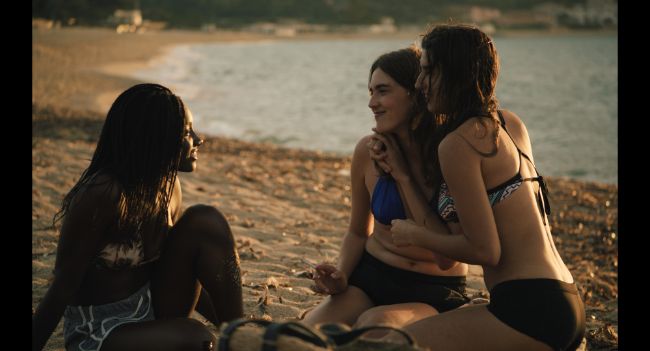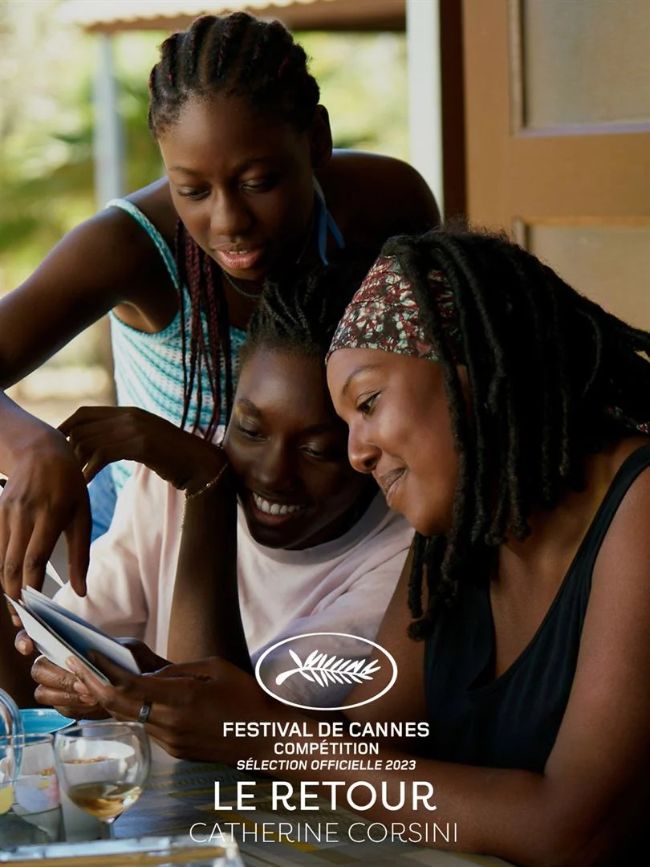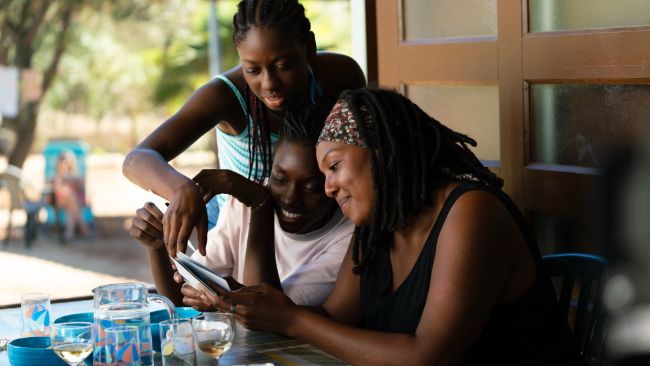Catherine Corsini’s ‘Le Retour’ Hits a Home Run at Cannes
- SUBSCRIBE
- ALREADY SUBSCRIBED?
BECOME A BONJOUR PARIS MEMBER
Gain full access to our collection of over 5,000 articles and bring the City of Light into your life. Just 60 USD per year.
Find out why you should become a member here.
Sign in
Fill in your credentials below.
French film Le Retour (Homecoming), directed by Catherine Corsini, premiered at the 76th Cannes Film Festival. Audiences were riveted by this beautiful drama about family, secrets, young love, race, and class. In an age where race and class feel evermore at the forefront of cultural discourse, this was a welcome picture to explore these topics in depth and with a new lens.
French director Corsini’s film has not been without its issues in the leadup to the festival. It was initially not included in the festival lineup due to issues from the film’s set having to do with minors acting in the film. Reportedly, there was a scene of a sexual nature that was not reported to the French film governing body (Commission des Enfants du Spectacle), which is to be informed of such instances, for the protection of minors.
Corsini has said that the scene in question – which was eventually removed from the final cut of the film – was discussed with the fully clothed young actors, who were offered body doubles and intimacy coaches, and turned down both. Another issue emerged from the set of the film when it was reported that a crew member said something inappropriate to a member of the cast.
While the film already had a narrative around it before it even premiered, I went in with an open mind, eager to see this film that had three Black women – an underrepresented demographic in Hollywood films – in starring protagonist roles.
We meet two teenagers, Jessica, and Farah, who are the daughters of Khédidja (Aïssatou Diallo Sagna), a professional “maternal assistant” (nanny). Their family lives in the Paris suburbs, and the three of them journey to the island of Corsica with the wealthy Parisian family Khédidja works for, caring for their children. Khédidja used to live in Corsica with her former partner, the girls’ father, a white Corsican man who died under mysterious circumstances.

Le Retour. Courtesy of Festival de Cannes
Jessica, 18, is the Golden Child. She’ll be attending university and studying political science. She’s focused, diligent, and she also becomes attracted to the daughter of the family her mom works for. The daughter, Gaia, shows Jessica around Corsica, opening her up to a new experience of the island, as well as a new experience romantically.
Farah, 15, is the younger sister who keeps messing up, in the eyes of her mom and Jessica. She steals things, she’s confrontational, and she’s mischievous and playful in that way that feels specific to the youngest child of a family. She’s also hilarious, smart, confident, and bold. But her sister and her mother can see none of these traits; they only see the goofball who keeps causing trouble.
It’s Farah who encourages Jessica to hop the fence at the wealthy family’s home so they can swim in the pool there, which was an invitation given to them – but the family isn’t home. This is when Jessica meets Gaia, the eldest daughter of the wealthy white family who smokes, drinks, and is a seeming rebel without a cause. Khédidja wishes her children would behave better, as her bosses tell her she is “so lucky” that her children are so well-behaved. It’s a clear case of “grass is always greener,” and how it’s hard to know what goes on behind closed doors, in one’s private life. Also, the film affirms the fact that things aren’t always as they appear.

Le Retour. Courtesy of Festival de Cannes
When Gaia drives Jessica to visit her late father’s former home in the village, she introduces herself to the house’s current owner. Gaia explains how Jessica used to live there with her father and mother and asks if she can have a look around the house. The older woman asks, “what’s your father’s name?”
When Jessica answers, the woman’s face is in shock. “Do you know who I am?” she asks. Jessica shakes her head. “I’m your grandmother. He was my son.” Jessica is both elated to discover she still has family on her father’s side, and she is also furious with her mom for keeping this from her all these years. Her mother told her that her grandmother was dead. We learn that this lie was done to protect her and her daughters; her mother-in-law blamed her for her partner’s death, an automobile accident. Before the mother and daughters left Corsica, the father was speeding in his car to see them.
I won’t spoil the ending – you’ll have to see it for yourself. But rest assured; this is a film that had me on the edge of my seat. It had tremendous heart and vulnerability, and it reminded me of how exciting – and terrifying – it is to be a young person experiencing everything for the first time and trying to find her place in the world.
Lead photo credit : Le Retour, courtesy of Festival de Cannes
More in Cannes, Cannes film festival





